Udio & Suno under fire: Major labels eying lawsuit against AI companies
Artificial intelligence from Udio & Suno in the spotlight - did they use music for training illegally?
According to various international music magazines, the three major record labels, UMG, Warner, and Sony, are considering a lawsuit against AI start-ups Suno and Udio for allegedly training their music generators on copyrighted music data. Why this “offense” should be taken to court is clear. But is it important to fight the generative AI in music, or should technology be given a little leeway? A similar issue concerning copyright has long been raised when it comes to sampling. What’s right and what isn’t?
What this article is about:
Why Udio is turning the music industry on its head with generative AI
A lawsuit is being considered against two well-established companies in the generative AI music space. While many competitors focus on generating music, lyrics or vocals, Suno and Udio allow users to generate all three elements at the touch of a button. Various music magazines have suggested the lawsuit could be filed as early as next week. We’ve asked the three major record labels, Suno and Udio, for comments but haven’t heard back yet.
These record labels, including UMG, have already taken legal action against Anthropic, another major AI company, for allegedly using copyrighted material to train its AI models. However, that case only revolved around lyrics, which are legally similar to written material. This new lawsuit focuses on music and sound.
Udio and the future of music: a threat to copyright?
Just a few months after it was launched, a user from Udio had already created an AI-generated hit song called “BBL Drizzy.” It was created by comedian King Willonius and went viral when super-producer Metro Boomin remixed it. The song later gained further publicity when it was re-sampled in “U My Everything” by Sexyy Red and Drake, making it the first case of sampling an AI-generated song in a major hit. Technology sure has come a long way.
Suno has also become quite the success story since its founding in December 2023. In May, the company announced that it had received 125 million dollars in funding from big-name investors, including Lightspeed Venture Partners, Nat Friedman, and Daniel Gross.
However, many people in the music industry have criticized both companies. They say that their generative models have been trained on lots of copyrighted material, including big-name hits, without getting permission, payment, or attribution to the rights holders. Suno and Udio have declined to comment on whether they have trained their AIs on copyrighted songs. Udio’s co-founders told Billboard Magazine that they simply train on “good music”.
Udio’s impact on the music industry: a blessing or a curse?
In a recent article about Suno in Rolling Stone Magazine, investor Antonio Rodriguez said that Suno doesn’t own any licenses for the music used to train the AI. He also stated that this didn’t worry him and that it was the risk they wanted to take when they invested in the company.
In a series of articles for Music Business Worldwide, Ed Newton-Rex, the founder of AI security organization Pretty Skilled, illustrated that he could generate music from Suno and Udio that “bears a striking resemblance to copyrighted music”. This applies to melody, chords, style, and lyrics. However, both companies say that users can’t copy artists’ styles. Artist names are blocked, when you use these tools.
If the lawsuit goes ahead, it’ll be about whether using unlicensed materials to train AI models is copyright infringement. This is one of the major obstacles for the AI industry, as their models (in any of the arts, be it graphics, music, or film) would likely output far worse quality if they excluded the training data from copyright-protected material. Numerous similar lawsuits have been filed recently in other sectors over unlicensed training.
The fair use doctrine
Many AI companies say that such training is protected by the fair use doctrine, a law that allows people to reuse protected works. Although fair use has historically allowed things like news reporting and parody, AI companies say it can be applied equally to using millions of works of art to create a new model that spits out entirely new creations. This argument will likely be the central issue in any lawsuit over AI training.
Some AI companies like Voice-Swap take a more “ethical” approach to AI training by working directly with companies and rights holders to license their copyrights or enter into official partnerships.
But there might be another way…
So far, the major labels have already set up these partnerships with AI companies:
- UMG and WMG have worked with YouTube on the AI voice experiment DreamTrack.
- Sony has teamed up with Vermillion for a remix project for The Orb and David Gilmour.
- WMG has worked with the estate of Edith Piaf to recreate her voice using AI for an upcoming biopic.
- More recently, UMG has teamed up with SoundLabs to allow their artists to create their own AI voice models for personal use in the studio for the upcoming vocal effect MicDrop.
Should we embrace AI technology or not? Quite a few colleagues have been using AI as a creative tool, similar to a computer introduced as an important studio tool around 25 years ago. Copyright should and must remain in place – and, of course, be defended. What do you think of the new developments in AI and art? Is such training comparable to the well-known sampling?
Further information on Udio, Suno and artificial intelligence
- Udio’s website
- Suno’s website
- More news about artificial intelligence
5 responses to “Udio & Suno under fire: Major labels eying lawsuit against AI companies”
You are currently viewing a placeholder content from Facebook. To access the actual content, click the button below. Please note that doing so will share data with third-party providers.
More InformationYou are currently viewing a placeholder content from Instagram. To access the actual content, click the button below. Please note that doing so will share data with third-party providers.
More InformationYou are currently viewing a placeholder content from X. To access the actual content, click the button below. Please note that doing so will share data with third-party providers.
More Information
 4,3 / 5,0 |
4,3 / 5,0 | 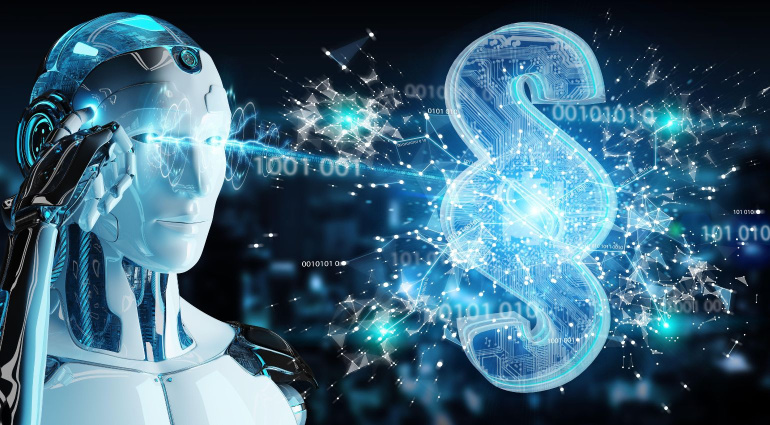

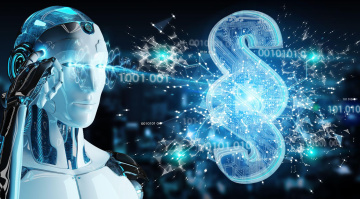

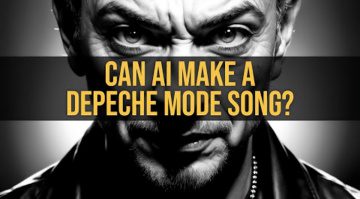
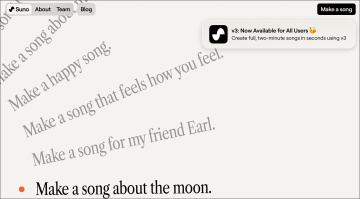

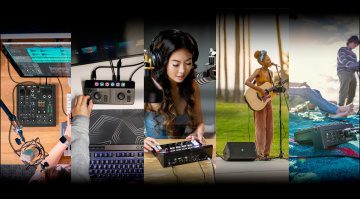
Don’t you worry the hype is already dying. And 3 things are killing it :
1) ressources (water and electricity) 2) It peaked and it’s not as good as expected 3) costs
Because these things are absolute power hogs and the grid just can’t take it any longer. And because of that, AI is VERY, VERY expensive. Once VCs get tired of burning cash and copyright holders start wanting to get paid, AI companies will have to charge. A lot.
And let’s be real… nobody will want to pay 50$ a month to generate crappy generic songs that sound like it’s been recorded in a bathroom saved as 128kbs MP3.
Enjoy the mess before the downfall. In the meantime, keep making music
(let’s just remember that OpenAI has no idea how to ever become profitable (they are losing 3/4 of a million a day) and their plan is to ask the AI what to do. Yeah, these people are absolute clowns.)
Well the technology is here to stay I think, even if it’s not that good in this first bubble but it ain’t going anywere. The copyright will have to adapt, it’s a bit of a mess anyway right now. A sample cd from the 90s with non exclusive loops is now copyrighted by the company releasing it (preventing the owners to even upload it on yt), a trad release from the balkans is now the copyright of the the performing arist just because he wrote himself as writer and got success in the west were nobody at the major label new anything about the songs. We talking about hundred of years old trad song. So copyright as is today is not working for the artists.
i tried both ai and to be honest ..thes are game changers and the resultes a wooow if you know how to feed you idear..and give a lot of inspiration..that never i thought …it opens up new way of making and thinking of music..the next new stepp ..has come toward musicmaking..and its real..y can not stop….inspiration..now perform it live that the magic about a musican..stay on a stage an perform..what is the creation of music ..thank to all scientist.
I dont think I would ever visit a concert where an AI “musican” is typing prompts to genarate some generic music. For what should I pay? Zero skill, heart and craftmanship?
Just a philosophical thought from Guru Juno; all the effort put into AI, all the trawling of the network and analysis of all of humankind’s ideas, all that work!!
Wouldn’t it be easier just to come up with a good idea yourself? 😎